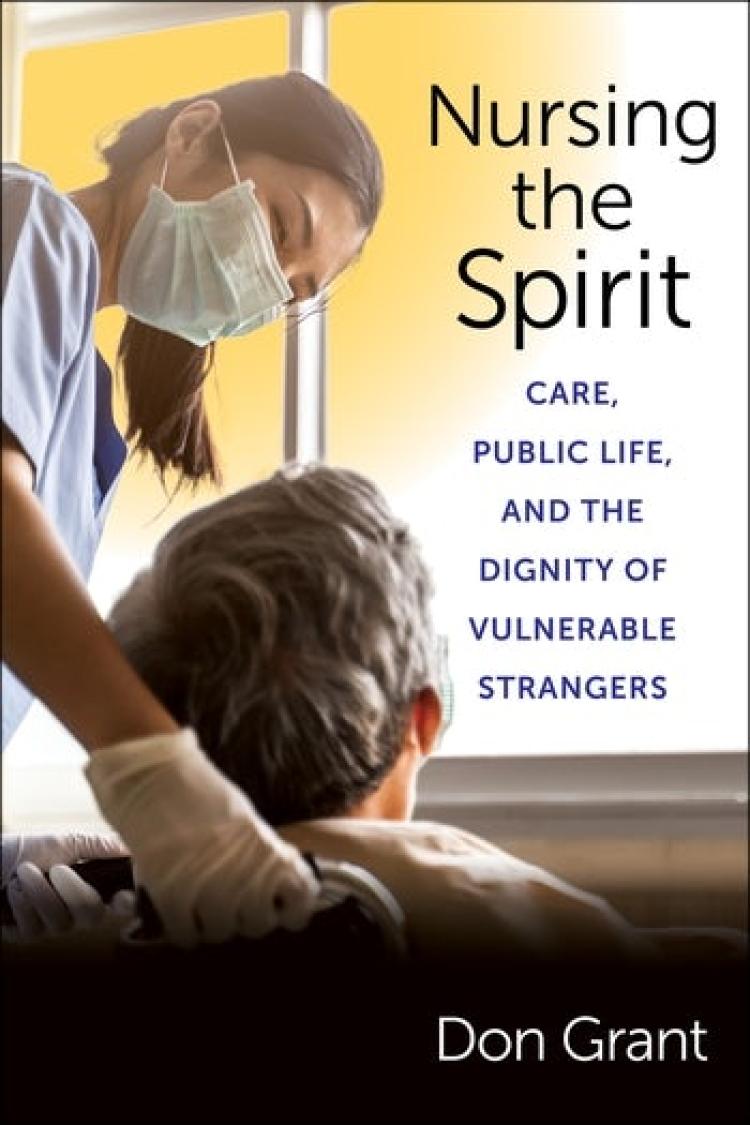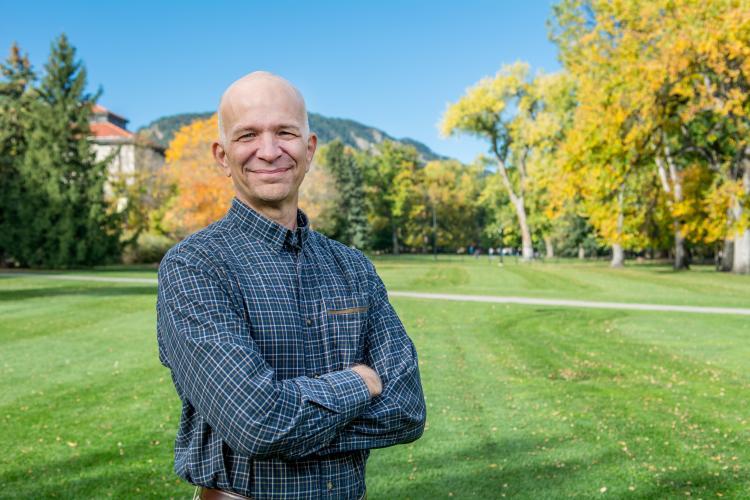Sociologist explores the spiritual side of nurses’ care
Don Grant’s new book takes readers inside a hospital where nurses and others tending to patients are also navigating between science and spirituality
In talking about how his new book, “Nursing the Spirit: Care, Public Life, and the Dignity of Vulnerable Strangers” (Columbia University Press), came to be, CU Boulder sociology Professor Don Grant explains that he comes from a religious background (liberal Protestantism) but chose to work in the highly secular field of social science.
“As a result, I sometimes struggle with a feeling that I left something important behind,” Grant says.
That sense of unease compelled Grant to spend part of a sabbatical working as a chaplain intern at an academic medical school, where he tried to integrate the sacred and secular.

Columbia University Press officially publishes book, 'Nursing the Spirit: Care, Public Life, and the Dignity of Vulnerable Strangers' on May 23, 2023.
“After weeks of stumbling and bumbling in that role, I discovered that the advice I received from nurses about how to approach patients and address their spiritual needs was often more helpful than the advice I received in the chaplaincy training program,” he says.
That experience, along with serving as a liver transplant donor for his dad, furthered Grant’s interest in the tension between religion and science and led him to conduct a formal study of nurses' spiritual care—the basis for his book, which hits shelves on May 23. Grant surveyed 297 nurses—making it the most in-depth survey on spirituality ever administered at a major non-sectarian organization.
Grant says the main message of his book is that what makes religion socially powerful is caregiving. He adds that, in the past, religion’s power was largely about organizing otherwise irrational beliefs and experiences into doctrines and creeds.
Today, Grant argues that religion’s power increasingly depends on its “person-giving and presence-enhancing” capacity.
“Part of religion’s humanizing function is still carried out in the private realm by friends and family. But as the development of the human species continues to shift from small, informal groups like families to large, science-based institutions like hospitals, these organizations will be increasingly expected to provide humanizing cultures.”
Grant says he believes hospitals will not only offer the benefits of science, but their frontline-care workers also will play a key role in deciding the fate of spiritual care.
Of the 24 therapies that health care experts identify as “spiritual” in nature, Grant says five are recommended by a majority of nurses he surveyed: holding a patient’s hand, listening, laughing, prayer and being present with a patient.
Grant didn’t speculate on what percentage of nurses in the United States conduct spiritual care. “Whether those findings apply to other nurses is unclear,” he says. “But the fact that so many of the nurses I surveyed engage in these forms of spiritual care even within a highly scientized and secularized setting like a public university’s medical center suggests that they might.”
He adds that today, spiritual care of patients is expected of nurses and is reflected in nursing codes of ethics, nurse education guidelines and policy documents. For example, the International Council of Nurses Code of Ethics states that the nurse is to “Provide an environment in which the human rights, values, customs and spiritual beliefs [of the client] are respected.”
Still, Grant says hospital administrators give frontline staff little, if any, formal training in spiritual care. And he says several studies also suggest that colleges and universities do “an incomplete job” training nurses in spiritual caregiving.

Don Grant is a professor of sociology and fellow of the Renewable and Sustainable Energy Institute at the University of Colorado Boulder, and directs their Social Innovation and Care, Health, and Resilience programs.
“This means workers are pretty much on their own: their workplace provides support for meeting goals like efficiency and accuracy, but when it comes to affirming humanistic values like spirituality, workers must improvise.”
In his book, Grant says doesn’t make recommendations about how to address this problem, except to suggest some practical steps that hospitals might take to make staff more comfortable discussing spiritual matters, such as periodically reminding nurses that they probably share an unspoken interest in spirituality because of their constant exposure to human suffering.
On the question of how nurses perform a dual role, Grant says his results were mixed.
“On the one hand, nurses believe they’re able to reconcile science and spirituality through storytelling and even claim that they can provide more spiritual care than chaplains. On the other hand, nurses rarely talk about spirituality among themselves because they are concerned that their colleagues are uncomfortable discussing such matters. Nevertheless, by engaging in subtle practices that honor patients’ ultimate worth as human beings, many nurses are able to instantiate spiritual values of care.”

